Madagascar
Madagascar's opposition, largely grouped within a collective, announced on Friday evening that it would "not recognize the results" of the first round of the presidential election, due to be announced on Saturday.
"We will not recognize the results of this illegitimate election, riddled with irregularities, and we decline all responsibility for the political and social instability that could ensue," warned the collective of eleven opposition candidates in a statement, ten of whom had called for a boycott of the November 16 election.
Siteny Randrianasoloniaiko, who stood apart from the collective for a time to lead the campaign but who co-signed the statement, also denounced "worrying anomalies" which, in his view, "raise legitimate questions about the validity of the results".
The Independent National Electoral Commission (CENI) is due to announce the provisional consolidated results of the first round of the presidential election on Saturday morning.
At the end of the day on Friday, its website showed more than 91% of ballots counted: incumbent president Andry Rajoelina was still leading by a wide margin with 59.52 of these votes, allowing him to envisage winning the election in the first round.
Elected in 2018, Andry Rajoelina first came to power in 2009 when a mutiny ousted former president Marc Ravalomanana.
According to a CENI estimate, some 60% of registered voters failed to turn out on November 16. Eleven million voters had to choose between 49-year-old Rajoelina and twelve other candidates.
But ten opposition candidates, including two former presidents, called on voters to "consider that these elections do not exist". They refused to campaign.
For weeks before the elections, the collective had been calling for demonstrations in Antananarivo on an almost daily basis. The protests, which were not massively attended, were regularly dispersed with tear gas.
The collective denounced irregularities during the election: closed polling stations, lack of ballot boxes, use of state resources by the incumbent candidate for his campaign.



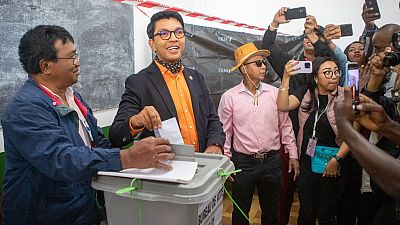

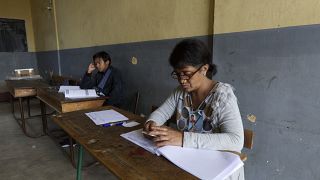
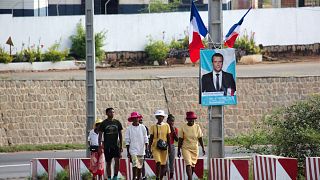
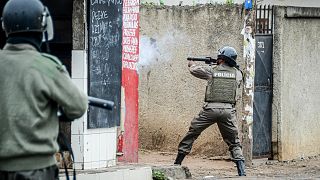
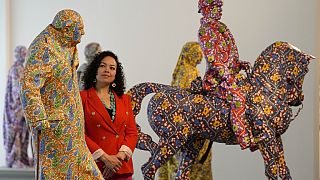



00:52
Nigeria’s Peter Obi to contest 2027 election, opposition coalition in jeopardy
01:00
Detained Chadian opposition leader Succes Masra begins hunger strike
Go to video
CAR officials issue statement claiming president is not seriously ill
01:09
Ivory Coast president set to announce whether he will seek a fourth term
01:09
Cameroon’s civil society calls on voters to sanction Biya in upcoming elections
Go to video
Funeral standoff halts repatriation of former Zambian president's body